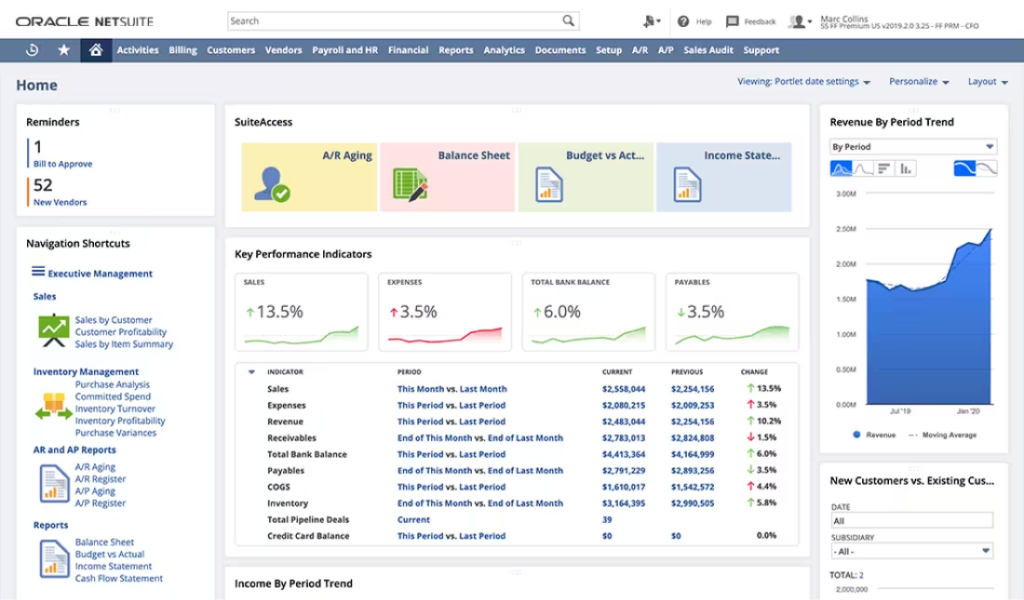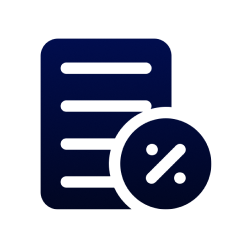
Looking for ERP software for your wholesale business? It's a wise decision, as using a well-functioning ERP system will pay off handsomely!
As a wholesaler, you may notice that your business processes are becoming increasingly complex and that using multiple systems complicates the overview. Fortunately, there is a solution to that called “ERP systems”!
Want to quickly see the list of the 5 best ERP packages for wholesalers? Via this link, you will instantly go to the list.
Are you ready to take your wholesale business to the next level? Then your next step is to choose your perfect software. Want to quickly get a list of systems suitable for your company? Fill in our ERP comparison tool and find out!

In this article, you'll discover the following:
Some ERP systems specifically suited for wholesalers (click on the system to learn more about the solution):
The systems above will give you an idea of possible ERP software for your wholesale business. Still, we advise you not to choose just any of the above options without further investigation.
In fact, we recommend that you fill out our independent comparison tool. That way, you'll select the system that fits your specific situation. Not one wholesale business is 100% the same as yours.
Below we will zoom in on the five ERP systems mentioned in the list above. We will tell you why this package is especially suitable for companies like yours. Good to know: Business Central, SAP One, and NetSuite are more suitable for the higher segment of wholesalers.
With Exact it is very easy to connect to other software (so-called Add-ons). Most of these connections are set-up within 5 minutes. Also, a quite sophisticated WMS system is built into Exact's software. This will make the day-to-day job of your order pickers way easier! Further, this ERP excels in inventory management functionalities.
Price indication: This package will cost you between € 245 and € 615per month for one user. Want to add a user? This will cost you at least 23 euros.

With this package, you get real-time insights into your stock levels. Another nice feature within Business Central is "automated replenishment". You will also get nice demand-forecasting functions. This will ensure you have the right product in stock.
Price indication: between € 65,50 and € 93,60 per user per month.

This ERP comes with integrated scanners for bar codes, scales, and sorting machines. With Priority their software you won't need any costly add-ons. This ERP is suitable for both wholesalers working with perishable and non-perishable products.
Priority is a fairly new player within this industry. All the others in this list are better known and more established.
Price indication: no price found on the site.

SAP offers six different software packages, you can find them here. SAP Business One is specifically for SMEs looking for an ERP solution. Unfortunately, we could not find any prices on the official website. To check whether they are as affordable as they say, you can ask for a price quote.
Price indication: no price found on the site.

NetSuite says they have a deep understanding of wholesale businesses across many different sectors. This is because they successfully implemented thousands of systems with companies similar to yours. NetSuite is one of the most used ERP systems within the wholesale industry. This of course does not tell whether the system is also suitable for you.
Price indication: prices vary too widely depending on specific situations to give you an indication.

ERP software helps you get a grip on all the processes within your wholesale business and make it more efficient. Think of order processing, financial administration to customer relationship management. All within a single system.
In short: with an Enterprise Resource Planning system, you gain insight into the complete operations of your wholesale business. This enables you to continuously improve your business.
An ERP system also helps you improve your supply chain integration. In fact you ensure yourself that your business processes communicate effortlessly with all the links in your supply chain (from supplier to end users!).

Certainly, there are alternatives to ERP systems. But these options, just as everything in life, also have their disadvantages.
The first alternative is to use a mix of software solutions. In this situation, you use different standalone solutions for CRM, Finance, and inventory management. As you may know, working with many different software packages can be hard.
The second alternative to ERP is to build custom software. Building software from scratch costs a lot of time and money. But it gives you the advantage to have software that's perfectly tailored to your situation and wishes.

Here are the biggest benefits of ERP systems for wholesalers:
Below I, Peter de Bruin, give you five pieces of advice to help you choose your perfect ERP. I have over 15 years of experience within the ERP and CRM market. As a result, I know perfectly what you, as an ERP seeker, should pay extra attention to. I also know where things can go wrong when selecting ERP systems.
The advice below will help you avoid picking the wrong ERP system for your wholesale business. It is very annoying to select less-than-optimal ERP software!
Use my advice and find the ERP that's right for you.
Depending on your type of wholesale company, we advise you to put extra emphasis on certain ERP functionalities.
But what exactly do we mean by this? We mean that B2B companies benefit extra from certain ERP features. And that B2C wholesalers experience extra utility from entirely different functionalities.
An example: good insight into outstanding accounts receivable is more important for a B2B wholesaler than for distribution centers focused on consumer products. On the other hand, insight into well-run products is more important for companies within the consumer sector.
Below we have listed the most important ERP features for both B2C and B2B for you. This allows you to know which features should not be missing from your new ERP system.

Pay extra attention to these ERP features when you are a B2C wholesaler:
These functionalities are particularly important for wholesalers focused on consumer products. This is due to the numerous small orders your business handles daily. This makes accurate insight into order status essential.
Are you a B2B organization? And are you looking for an ERP for your wholesale business? Then make sure your system has these features:
Within an ERP software package, good financial functions cannot be missing. Yet, we often see people opting for systems with poor financial functionalities.
So our advice is to check carefully whether the ERP you choose has your desired financial functionalities.
For example, do you want to make good predictions? Then good forecasting should not be missing!
Especially, Seasonality is a critical part of good forecasting. Are you a wholesaler dealing with highly fluctuating demand? Then Seasonality features are essential!
Seasonality features are important for these reasons:
In short, using seasonality in ERP systems helps you as a wholesale business. It helps you increase your flexibility, optimize your financial planning, improve customer satisfaction and helps you maximize your profitability.
A common mistake: organizations that choose an ERP based on low cost instead of functionality and quality.
We therefore advise you to focus on the functionality and quality of your ERP. And not take cost as the main criterion.
Imagine the following scenario: you pick a system (system A) based on a 20% lower price. Actually, you thought system B was just a little better for your wholesale business. You could already see that system B had just a bit more features. The cheaper system (system A) works well for the first few months. After six months, your wholesale business starts to grow. Your processes become more complex by the day. Now you find that your ERP (system A) lacks certain functionalities, such as forecasting. This is an essential component, and you want to switch to system B. Unfortunately, switching to another system is very complex and certainly not without costs.
You want to avoid the above situation at all costs. Therefore, our bonus advice: always select your ERP system with the future in mind. Try to visualize what your wholesale business will look like in 5–10 years. And choose an ERP that fits this situation.
Obviously, ERP software will cost you the necessary euros. Think of the implementation costs, training costs and license fees.
But why do you actually want to implement an ERP within your wholesale business? Exactly, you do this to improve your processes and to save costs.
Hence our advice: look at what an ERP will add to your bottom line. Not only focus on costs.
You may well need fewer FTEs for the same result. An ERP also allows you to process your orders faster. For example, you can process as many orders in 11 months as you used to in 12 months.
Always make your choice based on the specific situation within your wholesale business.
Do you have a distribution center where you sell only one product? Then a simpler system is probably fine.
Are you a wholesaler with many products and complex processes? Then an extensive ERP system will be a better fit. Do you fall into the latter category? Then we advise you to choose a partner who understands your industry.

These are the most important ERP modules for your trading processes:
Want to know more about even more features of ERP systems? Read it on our comprehensive page on ERP modules.
Curious about what this type of system looks like in practice? And are you curious about the most important functionalities? Via the ERP example below, we would like to give you a better idea of what to expect.
Here you see the home screen of Microsoft's ERP with all the important statistics:

The next screen, is an overview with the data per product. This functionality is especially important for B2C wholesalers:

Which ERP system suits your wholesale business depends on your budget, the DNA of your organization, the desired functionalities, and much more!
We therefore encourage you to fill out our comparison tool to find your perfect ERP system.
Find your perfect ERP-system